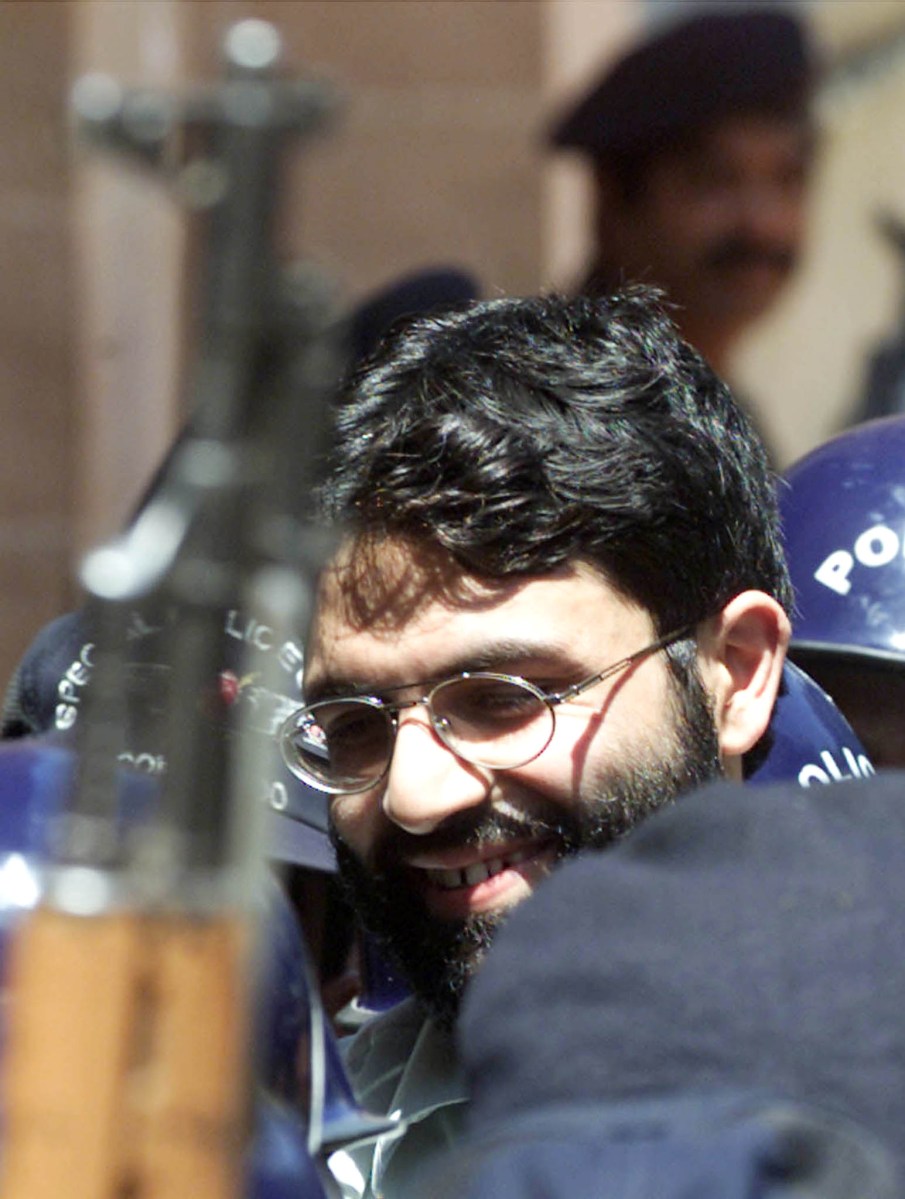KARACHI/ISLAMABAD (Reuters) – Pakistani authorities on Friday ordered the detention of four men set to be released after being acquitted by a court over the murder of U.S. journalist Daniel Pearl, and the government said it would challenge the acquittal next week.
The High Court in the province of Sindh on Thursday acquitted the four, including Briton Ahmed Omar Saeed Sheikh, who was sentenced to death in 2002 for masterminding Pearl’s murder. The other three were sentenced to life.
Wall Street Journal reporter Pearl, 38, was investigating Islamist militants in the city of Karachi, the capital of Sindh, after the Sept. 11, 2001, attacks on the United States when he was kidnapped in January 2002. He was beheaded weeks later.
The Sindh provincial government’s Home Department issued the order to arrest and detain the four before they were released from prison.
“The government of Sindh has sufficient reason that Ahmed Omar Sheikh and Fahad Nasim Ahmed, Syed Salman Saqib, Sheikh Muhammad Adil be arrested and detained for a period of three months from the date of arrest (April 2, 2020),” a top official of the department said in the order, seen by Reuters.
The official cited concern that the released men may act “against the interest of the country”.
The law to keep them in detention is one that the government has often used to keep high-profile suspects, particularly militants, in custody after being unable to successfully prosecute them in court.
The re-arrest of the four gives the government time to put together a legal appeal against their acquittal.
The appeal will be filed next week in the Supreme Court, the country’s top court, by the Sindh provincial government, Pakistan’s interior ministry said in a statement on Friday.
“Ministry of Interior, Government of Pakistan reiterates its commitment to follow due process under the laws of the country to bring terrorists to task,” the statement added.
The United States denounced Thursday’s court acquittal of the four, with the top U.S. diplomat for South Asia writing on Twitter that it was “an affront to victims of terrorism everywhere.”
“We welcome Pakistan’s decision to appeal the verdict,” acting U.S. Assistant Secretary of State for South and Central Asian Affairs Alice Wells said.
SCRUTINY
Pakistan joined the U.S.-led “war on terrorism” after the Sept. 11 attacks on the United States but it has been dogged by suspicion that it has for years secretly backed some militant factions as tools in its decades-old confrontation with rival India.
Pakistan denies that but it has been under the close scrutiny of a global watchdog on terror financing, the Financial Action Task Force (FATF), with its frequent inability to prosecute terrorism cases a particular concern of the agency.
Sheikh was born in Britain and enjoyed a privileged upbringing and studied at the London School of Economics.
He was arrested in India for his involvement in the kidnapping of Western tourists in 1994 as part of his support for Muslim separatists battling Indian security forces in the disputed Kashmir region.
He was one of three men released from an Indian prison after militants hijacked an Indian airliner in late 1999 and flew it to Afghanistan, where the then-ruling Taliban government helped negotiate an exchange.
(Writing by Gibran Peshimam; Editing by Robert Birsel)























